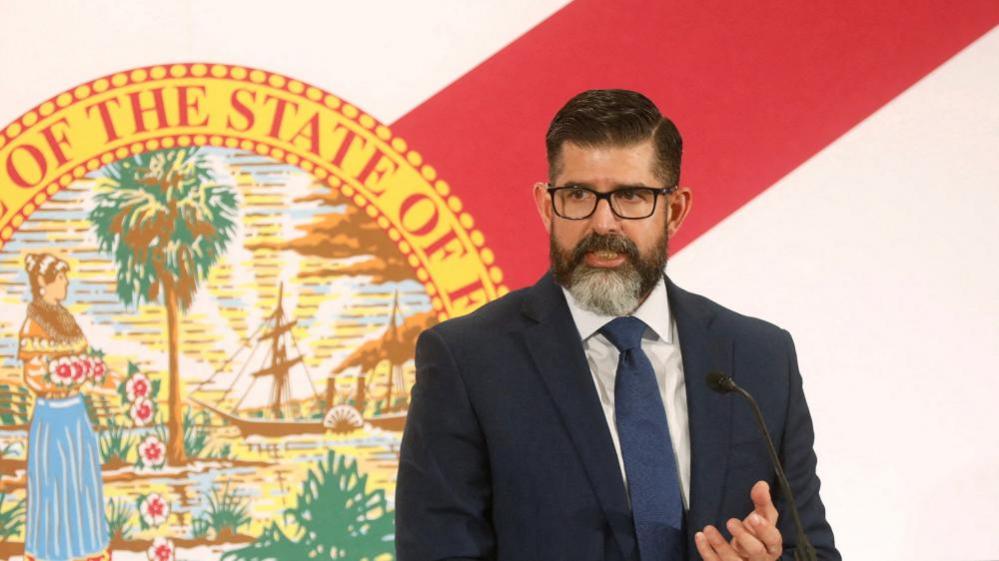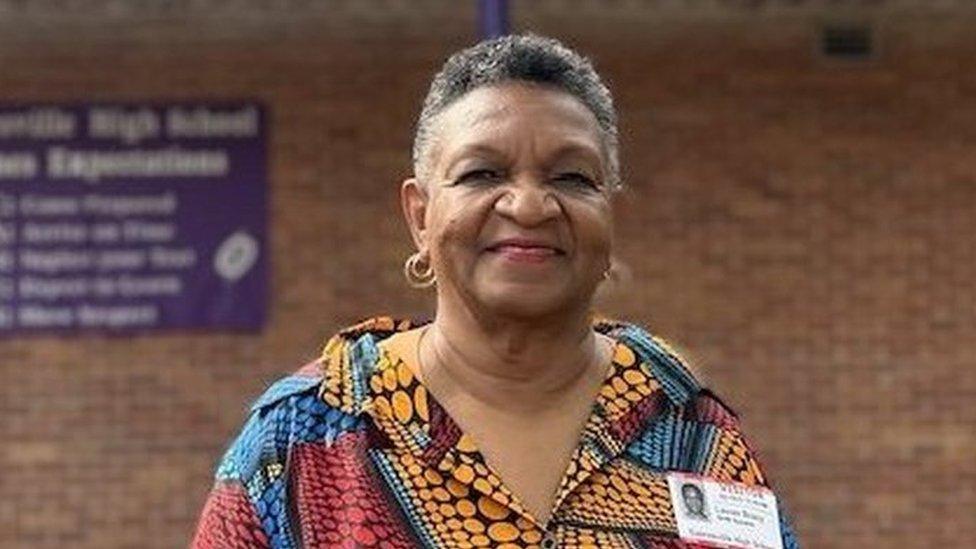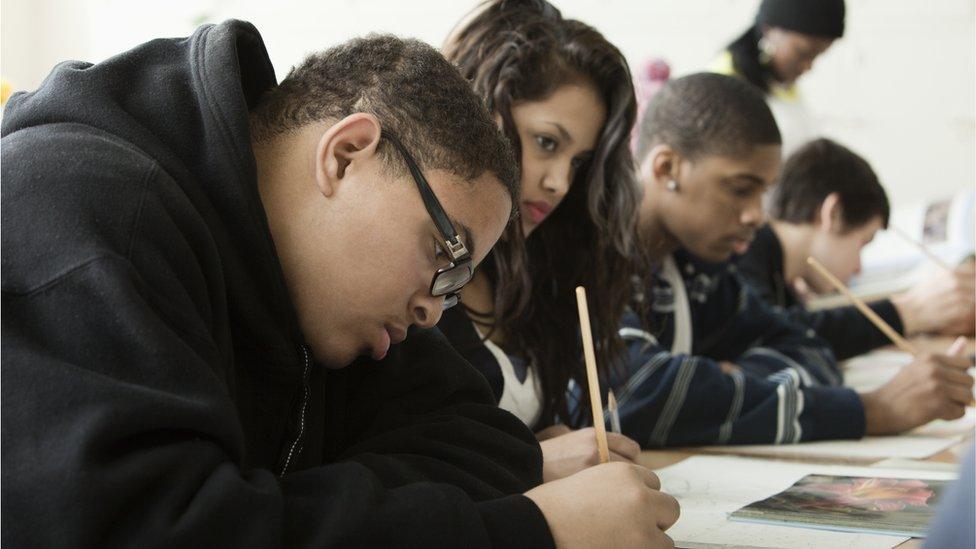Florida's new black history curriculum 'sanitised', say critics
- Published

Florida Education Commissioner Manny Diaz Jr has defended the new guidelines
Florida has approved controversial new standards for teaching African American history at the state's public schools.
The updated guidelines include a requirement that students learn "how slaves developed skills which, in some instances, could be applied for their personal benefit".
Critics called the new guidelines "sanitised" and "a big step backward".
Florida's education commissioner has denied the lessons will shy away from "the tougher subjects".
The new set of standards follow the passage of legislation last year that bars school instruction suggesting anyone is privileged or oppressed based on their race or skin colour.
The law is one facet of a broader assault on what Florida Governor Ron DeSantis, a 2024 Republican presidential candidate, calls "woke indoctrination" in the US education system.
The academic standards, approved on Wednesday at a meeting of the Florida Board of Education, are designed to guide lessons from kindergarten through high school.
The 216-page social studies curriculum, external includes teachings on how black people have positively influenced and contributed to the country, on the causes and consequences of the slave trade, and on the civil rights advancements made throughout African American history.
But it also includes several revisions. Educators and civil rights advocates have raised concerns about two in particular.
When students are instructed on the various duties and trades performed by slaves, lessons must now include how these skills "in some instances, could be applied for their personal benefit".
And during lessons on the growth and destruction of black communities during the Reconstruction era, including events like the 1921 Tulsa Massacre, students must be made aware of how violence was perpetrated both "against and by African Americans".
"How can our students ever be equipped for the future if they don't have a full, honest picture of where we've come from?" Andrew Spar, president of the Florida Education Association teachers' union, wrote in a statement.
Mr Spar alleged the changes are "cheating" kids who "deserve the full truth of American history, the good and the bad".
The National Association for the Advancement of Coloured People (NAACP) civil rights group said the standards "convey a sanitised and dishonest telling of the history of slavery in America".
The Florida Board of Education did not respond to the BBC's request for comment.
In a statement provided to Reuters on Thursday, William Allen and Frances Presley Rice, members of the working group that developed the new guidelines, said the language on skills was meant to show that those enslaved were not merely victims.
"Florida students deserve to learn how slaves took advantage of whatever circumstances they were in to benefit themselves and the community of African descendants," they said.
Education Commissioner Manny Diaz also earlier defended the proposal: "As age-appropriate, we go into some of the tougher subjects, all the way into the beginnings of the slave trade, Jim Crow laws, the civil rights movement and everything that occurred throughout our history."
But sparks flew at the board's meeting on Wednesday, where several teachers and Democratic state lawmakers in opposition to the standards tangled with policymakers ahead of the vote.
"If I were still a professor, I'd have to grade this 'I' for incomplete," said Senator Geraldine Thompson, a former university lecturer.
Related topics
- Published11 March 2023

- Published2 February 2023

- Published23 March 2023
